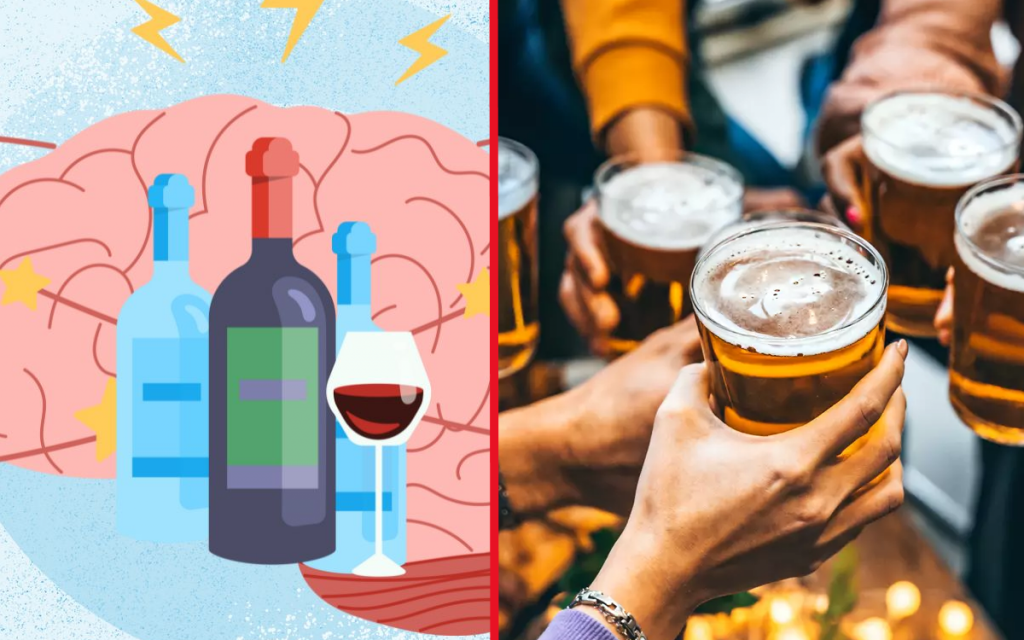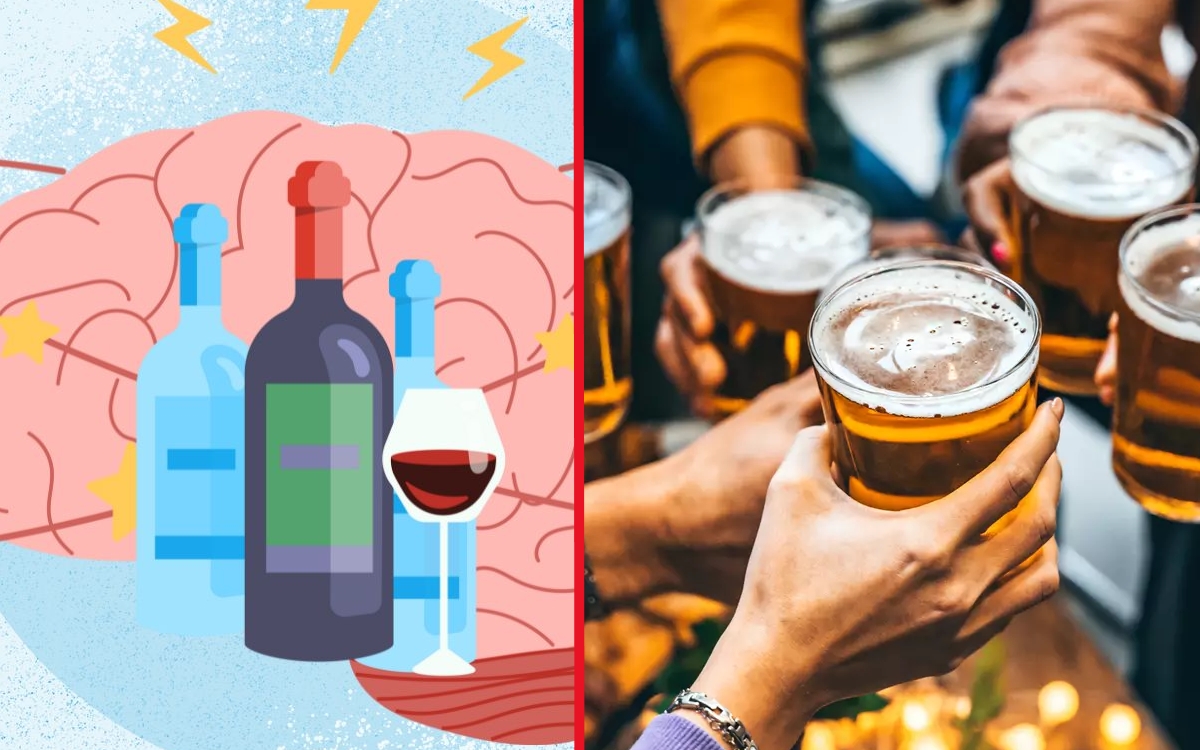A landmark study published this week in the Lancet Neurology reveals that consuming eight or more alcoholic drinks per week is associated with reduced grey-matter volume and slower cognitive processing—even in adults well below typical “heavy drinking” levels. Researchers followed 16,000 participants over five years, using MRI scans and neurocognitive tests to track brain changes and performance.
@TheLancetNeurol “Our data show that even ‘moderate’ alcohol intake is linked to brain structure alterations and cognitive decline.” via X
Lead author Dr. Sofia Ramirez of University College London told BBC Health that “our findings challenge the notion that moderate drinking is harmless—or even beneficial—for brain health. We saw dose-dependent effects: participants drinking 8–14 units weekly had measurable grey-matter loss compared to abstainers.” One UK unit equals roughly half a pint of beer or a single measure of spirits.
To measure cognition, the team administered reaction-time tests and memory tasks, finding that those in the highest consumption bracket—over eight drinks weekly—scored 5–7% lower on average, an effect size comparable to two years of aging American Psychological Association analysis. The decline accelerated among those exceeding 14 drinks per week, indicating no “safe” threshold beyond abstinence.

@APA_Monitor “Even moderate alcohol use (1–2 drinks daily) linked to cognitive slowing—similar to aging two years faster.” via X
Neuroimaging revealed that the prefrontal cortex—critical for decision-making—and the hippocampus, essential for memory consolidation, displayed the most pronounced volume reductions. These regions are known to be sensitive to neurotoxicity and inflammation. A complementary review in the Nature Reviews Neuroscience suggests alcohol-induced neuroinflammation as a likely mechanism.
The study’s authors compared their results against current guidelines. The UK’s recommended maximum is 14 units per week; the U.S. National Institute on Alcohol Abuse and Alcoholism advises up to seven drinks for women and 14 for men. “Our data indicate these limits may need reevaluation,” Dr. Ramirez said, echoing concerns raised by the World Health Organization that no level of alcohol consumption is entirely risk-free.
@WHO “Global evidence supports: alcohol is a carcinogen and neurotoxin—lower consumption correlates with better health outcomes.” via X
Behavioral scientists emphasize the implications for public health. Dr. Mara Chen, an addiction specialist at Johns Hopkins, wrote in a Johns Hopkins press release that “even moderate drinkers should consider “dry days” and limit weekly intake to under eight units to preserve cognitive function.” She recommends combining lower-alcohol beverages, alternating with water, and using digital trackers like the NIAAA’s smartphone apps to monitor consumption.
@NIAAAnews “Track your weekly units—our apps help you set goals and avoid cognitive risks.” via X
Social-media influencers have sparked debate. Under the hashtag #BrainOnWine, wine enthusiasts and health advocates clash over lifestyle choices. Fitness coach @FitWithLaura tweeted: “Sad to see my Friday glass of rosé causing brain shrinkage—time to swap for kombucha!” while wine critic @WineLoverJoe responded, “Context matters—antioxidants in red wine may offset some damage.”
@FitWithLaura “Ditch the vino—choose brain health. Kombucha FTW!” via X
Industry representatives caution against alarmism. The Brewers Association issued a statement noting that “responsible drinking within national guidelines has not been proven to cause irreversible harm,” citing a J-shaped curve meta-analysis suggesting moderate drinkers may have lower cardiovascular risk. However, neuroscientists argue cardiovascular benefits do not mitigate neurotoxicity.
Policy makers are taking note. Scotland’s Chief Medical Officer announced a review of weekly limits, while Ireland’s Health Minister called for updated labeling on alcoholic beverages, detailing cognitive risks government release. The U.S. FDA is reportedly convening an advisory panel to consider similar labeling requirements.

Consumer advocacy groups, including @AlcoholJustice, urge stricter measures: “Warning labels must include brain health risks,” their campaign page reads Alcohol Justice. Meanwhile, industry-funded lobbyists push back, arguing for “balanced messaging” that highlights responsible enjoyment.
@AlcoholJustice “Everyone deserves to know: eight drinks a week can shrink your brain. Demand warning labels!” via X
As the debate unfolds, individuals can take immediate action. Experts recommend following low-risk guidelines, scheduling regular “alcohol-free” days, and seeking professional support if cutting back proves challenging. For tailored advice, the Alcohol Change UK helpline and NIAAA resources are available.
Ultimately, this study underscores that the definition of “moderate” drinking must be reconsidered in light of emerging neuroscience. Limiting intake to fewer than eight drinks per week—and ideally less—may preserve not only long-term brain health but also daily cognitive performance. As Dr. Ramirez concludes, “Your brain deserves the same care you give your heart—choose clarity over comfort.”






